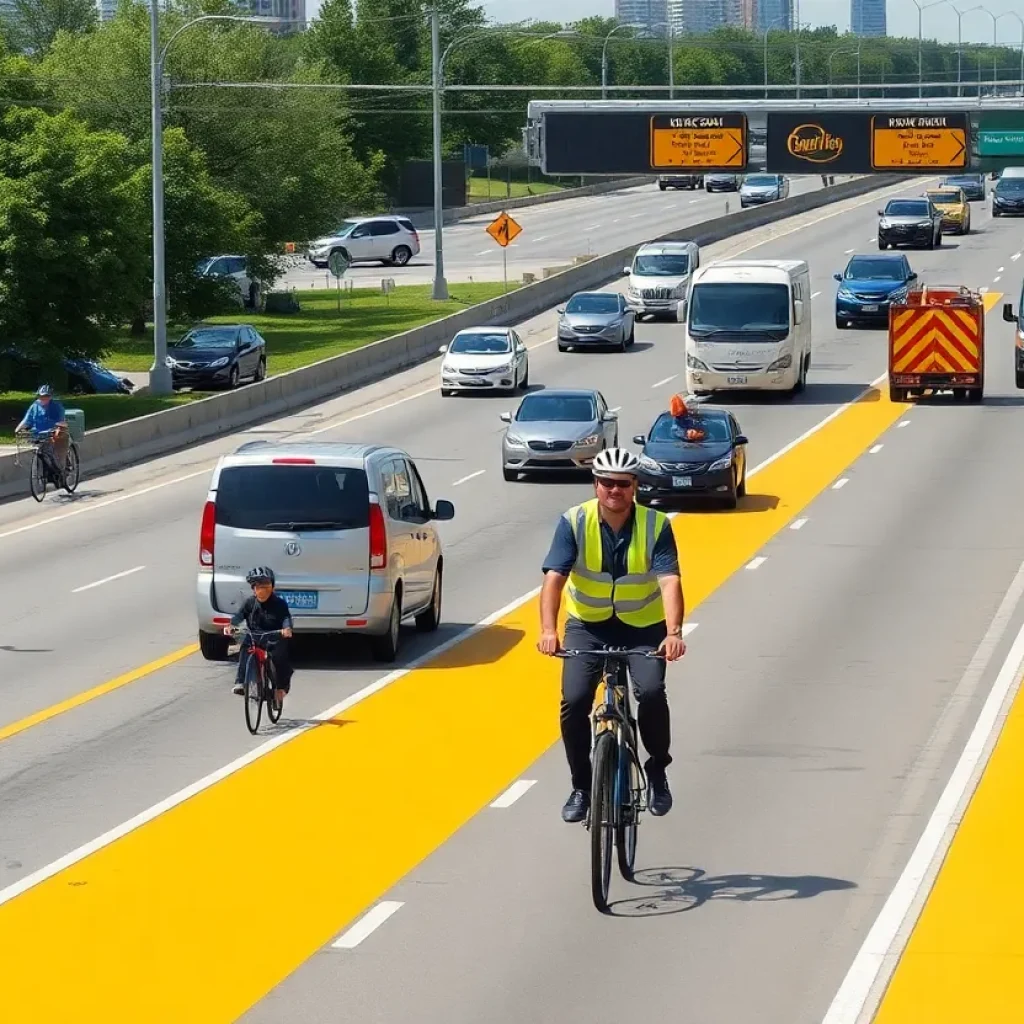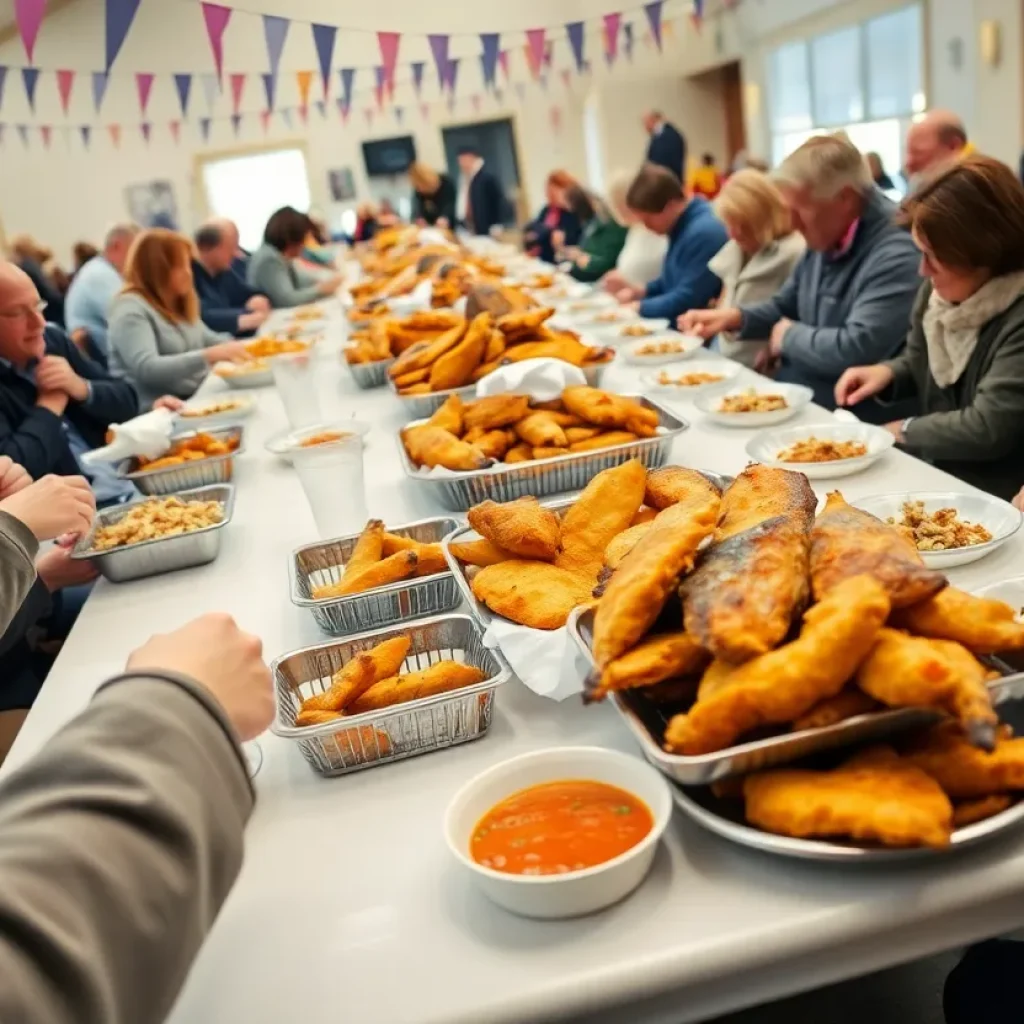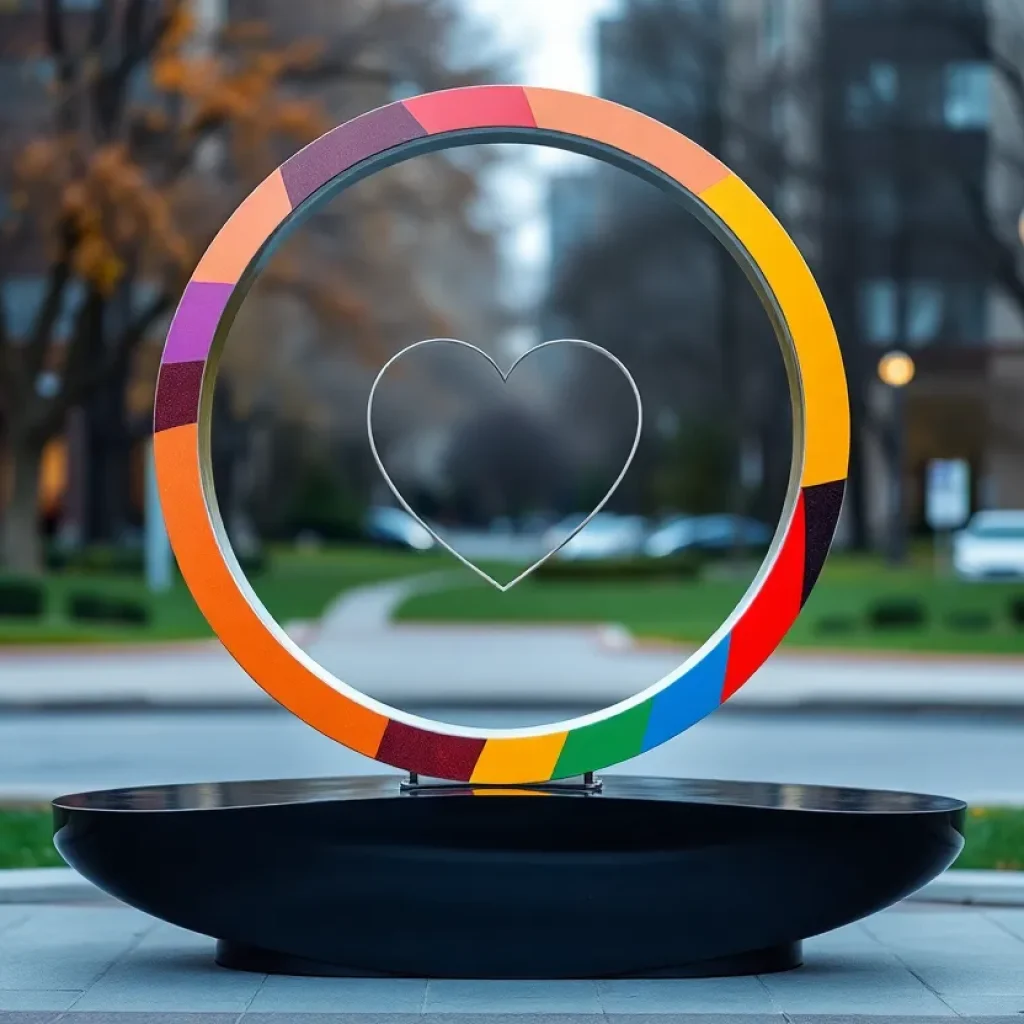Kansas City News
TOP kansas city STORIES
BREAKING NEWS
Traffic Woes in Kansas City: A Report on Recent Incidents and Delays
News Summary Kansas City has been experiencing significant traffic disturbances recently due to multiple vehicle incidents, including crashes and breakdowns on major highways. From the southbound I-435 to the George...
America’s Political Chaos: Opportunities for Europe
News Summary As America faces significant political turmoil under the current administration, Europe is viewing this turmoil as a chance to strengthen its own global position. From military commitments to...
Kansas City Police Standoff Over Illegal Drugs
News Summary In a tense standoff in Kansas City, Kansas, two men resisted police efforts to serve a warrant for over six hours. Ultimately, both suspects were taken into custody...
Community Voices Share Concerns Over National Policies
News Summary In Kansas City, residents express their concerns regarding national political policies and their impact on local and global dynamics. A series of letters to the editor reveal worries...
Kansas City Residents Beware: Temporary Bridge Closures Due to Hydraulic Fluid Spill
News Summary Kansas City is facing periodic bridge closures on the Lamar Avenue bridge due to a hydraulic fluid spill from a contractor’s vehicle. Cleanup crews, including the Johnson County...
Kansas City Police Arrest Suspect in Liquor Store Homicide
News Summary Kansas City police have arrested Justin J. Arbee, a suspect in the tragic shooting of Zulfiqar Ladhani, the owner of Joe’s Liquor & Convenience Store. The incident occurred...
BUSINESS
Kansas City Innovates Affordable Housing Solutions
News Summary Daniel Edwards, a local entrepreneur, is revolutionizing the housing market in Kansas City by focusing on affordable housing. With a background in architectural engineering and a commitment to...
Kansas City Prepares for Economic Growth Ahead of 2026 FIFA World Cup
News Summary Kansas City is gearing up to be a key player in the FIFA World Cup 2026, with leaders emphasizing the need for coordinated economic development. The event could...
Furniture Mall of Missouri to Open Third Location in Northland
News Summary The Furniture Mall of Missouri is set to open its third location in Kansas City’s Northland, taking over the soon-to-close Macy’s store. Renovations will begin on April 1st...
Kansas City Bids Farewell to On the Border Mexican Grill
News Summary On the Border Mexican Grill & Cantina has closed its last Kansas City location after 25 years. The Overland Park spot marked the end of an era for...
dScribe AI Secures $1.2 Million Pre-Seed Funding
News Summary Kansas City tech startup dScribe AI has successfully secured $1.2 million in pre-seed funding to innovate video insights through their platform. Founded by Jordan Mryyan, Cole Robertson, and...
Kansas City Says Goodbye to Salty Iguana After 33 Years
News Summary The beloved Salty Iguana Mexican restaurant, a staple in Kansas City for over three decades, has permanently closed all its locations due to financial difficulties. The chain cited...
Kansas City Set to Open Switchyards’ First Midwest Work Club
News Summary Switchyards is preparing to open its first Midwest ‘Neighborhood Work Club’ in Kansas City on April 14. This unique workspace blends a cozy coffee shop atmosphere with the...
Kansas City Life Insurance Proposes Midtown Redevelopment
News Summary Kansas City Life Insurance has unveiled a comprehensive plan for redeveloping its Midtown properties, which includes demolishing several historic buildings to make way for new constructions. Residents are...
New Zaxby’s Opens in Leavenworth to Satisfy Chicken Cravings
News Summary Zaxby’s has officially opened a new location in Leavenworth, Kansas, at 4925 S. Fourth St. This marks the fifth Zaxby’s in the Kansas City area, providing local chicken...
Events/What's Happening
Kansas City Takes Major Steps Toward a Safer 71 Highway!
News Summary Kansas City is moving ahead with a $5 million federally funded project to improve safety and connectivity along the 71 Highway. The initiative addresses the highway’s dangerous intersections...
Kansas City Unveils The Science of Guinness World Records Exhibition
News Summary The Science of Guinness World Records exhibition has opened at Union Station in Kansas City, running from March 8 to September 2. This immersive experience features around 70...
Explore Kansas City’s Gangster History on Special Tour
News Summary The Kansas City Gangster Tour, celebrating its 20th anniversary in 2025, offers an engaging experience into the city’s gritty past. Visitors can expect a 90-minute adventure exploring notorious...
Kansas City Area Braces for Breezy Conditions and Temperature Fluctuations
News Summary Kansas City residents can expect a breezy Friday with gusty winds and temperatures peaking around 60 degrees, a welcome change from average February weather. As a cold front...
Kansas City Prepares for Lenten Fish Fry Season
News Summary Kansas City is gearing up for its beloved fish fry tradition as the Lenten season approaches. Local churches and organizations will serve crispy fish dinners every Friday from...
Karen Russell to Present New Novel in Kansas City
News Summary Bestselling author Karen Russell will be in Kansas City on March 15, presenting her new novel, ‘The Antidote.’ Set during the Dust Bowl, the story explores significant themes...
Boulevardia Music Festival Celebrates 10th Anniversary
News Summary Kansas City’s beloved Boulevardia Music Festival is gearing up for a memorable 10th anniversary this summer. Scheduled for June 14, 2026, at Crown Center, the festival transforms into...
Kansas City Unveils New Sculpture Design for 2026 Parade of Hearts
News Summary Kansas City is preparing for the 2026 Parade of Hearts with a new sculpture design that embodies the theme ‘Hearts of Unity.’ Revealed during a press event by...
Cultural Excitement Awaits in Kansas City This Weekend
News Summary This weekend, Kansas City is alive with vibrant cultural events for all ages! From the stunning Orchid Delirium exhibit at Powell Gardens to the world premiere of ‘Cruzar...
CRIME
Kansas City Police Standoff Over Illegal Drugs
News Summary In a tense standoff in Kansas City, Kansas, two men resisted police efforts to serve a warrant for over six hours. Ultimately, both suspects were taken into custody...
Kansas City Residents Beware: Temporary Bridge Closures Due to Hydraulic Fluid Spill
News Summary Kansas City is facing periodic bridge closures on the Lamar Avenue bridge due to a hydraulic fluid spill from a contractor’s vehicle. Cleanup crews, including the Johnson County...
Kansas City Police Arrest Suspect in Liquor Store Homicide
News Summary Kansas City police have arrested Justin J. Arbee, a suspect in the tragic shooting of Zulfiqar Ladhani, the owner of Joe’s Liquor & Convenience Store. The incident occurred...
Man Steals City Bus and Assaults Officer in Kansas City
News Summary In a shocking incident, Shahid R. Pratt, a 49-year-old man, stole a Kansas City Area Transportation Authority bus and assaulted a police officer during an encounter with law...
Kansas City Men Plead Not Guilty in Drug Overdose Case
News Summary In Kansas City, two men have pleaded not guilty to charges related to the overdose deaths of three Chiefs fans. The victims were found dead due to a...
Kansas City Business Goes Cashless Amid Rising Crime
News Summary Brookside Barkery in Kansas City has opted for a cashless payment system following multiple break-ins that have alarmed business owners and local residents. The decision comes in response...
POLITICS
America’s Political Chaos: Opportunities for Europe
News Summary As America faces significant political turmoil under the current administration, Europe is viewing this turmoil as a chance to strengthen its own global position. From military commitments to...
Community Voices Share Concerns Over National Policies
News Summary In Kansas City, residents express their concerns regarding national political policies and their impact on local and global dynamics. A series of letters to the editor reveal worries...
Kansas City Police Arrest Suspect in Liquor Store Homicide
News Summary Kansas City police have arrested Justin J. Arbee, a suspect in the tragic shooting of Zulfiqar Ladhani, the owner of Joe’s Liquor & Convenience Store. The incident occurred...
Kansas City Grieves After Tragic Construction Incidents
News Summary Kansas City mourns the loss of construction workers after two tragic incidents raise concerns about safety protocols on job sites. A worker was killed by an overturned vehicle,...
Kansas City Ordinance on Income Discrimination Temporarily Halted
News Summary A Kansas City ordinance designed to prevent income discrimination in housing has been temporarily halted by a court ruling. Judge Roseann Ketchmark deemed the ordinance a violation of...
Kansas City Workers Express Concerns Over Recent Mass Firings
News Summary Kansas City is facing unrest as federal employees are laid off due to efficiency cuts linked to a federal workforce reduction initiative. Agencies including FEMA and IRS are...
Kansas City Office Buildings in Spotlight for Sale
News Summary Kansas City is focused on four federal properties, including the historic Richard Bolling Federal Building, identified as non-core assets by the GSA for potential sale. This could save...
Kansas City Council Reinsources Animal Control Services
News Summary The Kansas City Council has decided to transition animal control services from the KC Pet Project back to a city department. This change raises concerns about the effectiveness...
Uncertain Times for Social Security Workers in Kansas City
News Summary Kansas City is facing uncertainty as Social Security Administration workers express concerns over impending job cuts. During a recent town hall hosted by Rep. Mark Alford, employees revealed...
SPORTS
Missouri Celebrates Team Spirit Ahead of Super Bowl LIX
News Summary The state of Missouri is bursting with pride as the Kansas City Chiefs prepare for their third consecutive Super Bowl appearance against the Philadelphia Eagles. The iconic Missouri...
Kansas City Streetcar Returns for Super Bowl LVIII
News Summary Kansas City celebrates the return of the streetcar just in time for Super Bowl LVIII. After a brief closure for track construction, service resumed on February 7, 2025,...
Kansas City Prepares for Super Bowl LIX: TV Schedule Changes
News Summary Kansas City is buzzing as fans gear up for Super Bowl LIX, where the Chiefs will face the Eagles. Viewers should note schedule changes, including a late-night airing...
Kansas City Prepares for Chiefs Parade Amid Economic Concerns
News Summary As Kansas City gears up for a potential Chiefs parade celebrating a third consecutive Super Bowl title, the city also grapples with economic challenges stemming from ongoing trade...
Kansas City Prepares for 2026 FIFA World Cup
News Summary Kansas City is gearing up for the 2026 FIFA World Cup with an investment proposal of $40.5 million from Governor Mike Kehoe, aiming to enhance security, transportation, and...
Philadelphia Sparks Debate Over NL MVP Honors Amid Castellanos’ Support for Iglesias
Philadelphia Sparks Debate Over NL MVP Honors In the bustling atmosphere of Philadelphia, the baseball chatter has been buzzing around a bold statement made by Nick Castellanos, outfielder for the...
Sacramento Kings Ignite Fan Excitement with Thrilling Win Streak
Sacramento Kings Fans Getting Fired Up Over Recent Win Streak Hey there, basketball enthusiasts! If you’ve been keeping an eye on the Sacramento Kings, you might have noticed something pretty...
Philadelphia Eagles Secure Wild Card Victory Amid Controversial Saquon Barkley Decision
Philadelphia Eagles vs. New York Giants: A Wild Card Game to Remember This past Sunday in Philadelphia, the excitement surrounding the NFL Wild Card game was palpable. Fans packed the...
Rookie QB Jayden Daniels Leads Commanders to Thrilling Playoff Victory Over Buccaneers
Tampa Bay, Florida – A Rookie Sensation Shocks the NFL Well, folks, you just never know what to expect in the wild world of the NFL, and Sunday night gave...














































